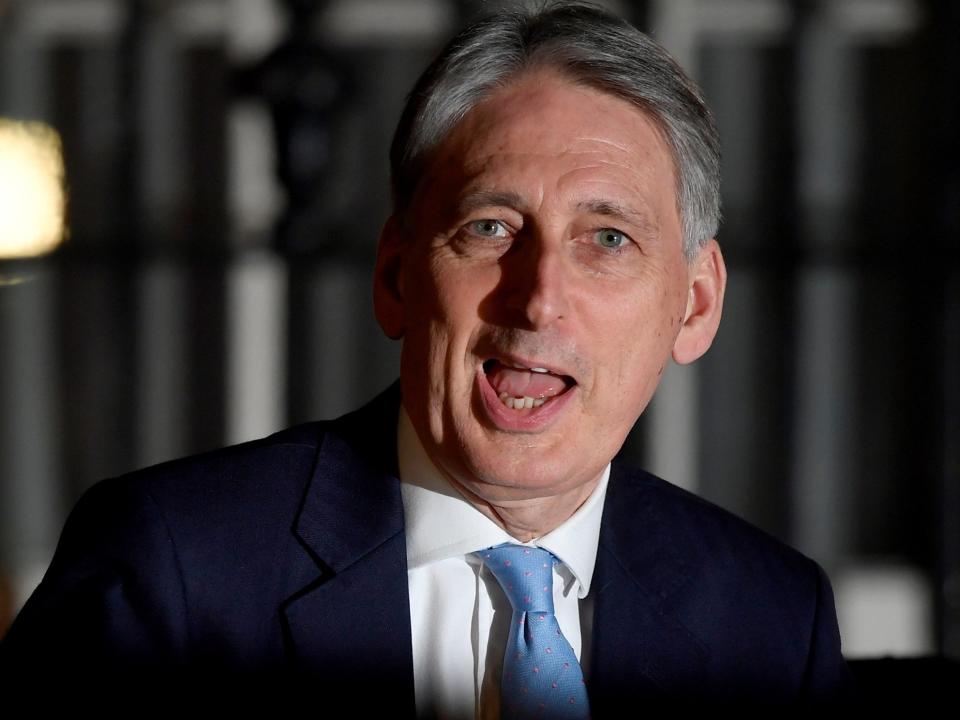Pre-Brexit boost for Philip Hammond as UK public finances in record surplus for January
The UK government has recorded its largest January budget surplus since records began in 1993, delivering a pre-Brexit boost for the chancellor, Philip Hammond.
The public finances were £14.9bn in surplus last month, driven by an increase in self-assessment income tax and capital gains tax receipts.
The surplus is £5.6bn higher than in January last year and well ahead of economists’ forecasts of £10bn.
Mr Hammond now has a chance of meeting the government’s £25.5bn borrowing target for the year, though economists warned that the headroom available to increase spending in his Spring Statement next month is likely to be eroded by lower economic growth forecasts.
The Bank of England recently downgraded the outlook for growth. If the government’s official forecasts follow a similar path, £5bn will be added to the deficit in the medium-term.
The Institute for Fiscal Studies said the chancellor is on track for below-target borrowing of £22bn this year but was not entirely optimistic.
“Even in spite of today’s good news ... there could be tricky fiscal arithmetic for the chancellor as he considers how best to respond to uncertainty around Brexit and how much money to make available to departments at this year’s spending review,” the IFS said.
Howard Archer, chief economic adviser to the forecasting group EY ITEM Club, said: “A record high surplus on the January public finances provides a much-needed boost for Chancellor Philip Hammond as he faces a worrying backdrop to his Spring Statement on 13 March.
“With the economy clearly struggling early on in 2019 after a sharp slowdown in the fourth quarter of 2018 and the Brexit situation highly uncertain, the chancellor will have a lot on his mind when he presents the Spring Statement.
“It looks highly likely that he will have to announce downgraded growth forecasts from the OBR (Office for Budget Responsibility) at least for the near term with possible negative ramifications for expected budget deficits.”


